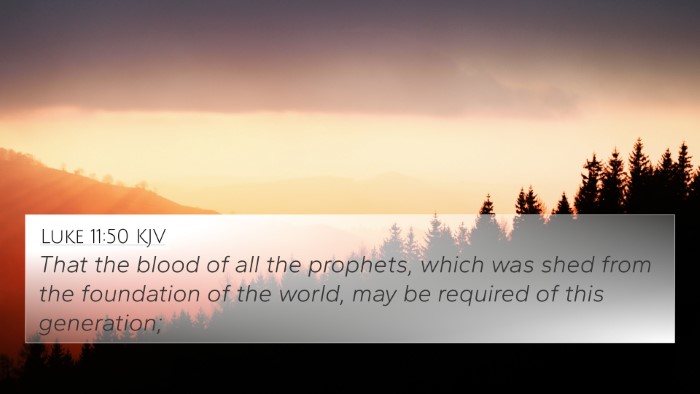Understanding 1 Thessalonians 2:16
Bible Verse: 1 Thessalonians 2:16
This verse conveys a profound message regarding the relationship between the early Christian community and the Jewish leaders of the time. It reflects the tension that arose from the spread of the Gospel and the rejection it faced.
Context and Background
The Apostle Paul, in his letters to the Thessalonians, addresses various aspects of faith, perseverance, and the hostility faced by believers. In 1 Thessalonians 2:16 specifically, Paul discusses the continued opposition to the Gospel and the implications of that opposition.
Verse Analysis
Paul indicates that the Jews were responsible for hindering the spread of the Gospel, which ultimately led to their own judgment (1 Thessalonians 2:16). The grounding for this statement can be seen as both punitive and reflective of their unbelief.
Summarized Insights from Public Domain Commentaries
- Matthew Henry: Henry suggests that the Jews’ actions not only caused harm to themselves by rejecting the Gospel but also led to the filling up of their sins. Their hostility is viewed not merely as personal animosity but as a collective rebellion against God’s will.
- Albert Barnes: Barnes elaborates that Paul's mention of the Jews emphasizes their historical disobedience and the continued rejection of Christ. He frames the verse within the narrative of Biblical history, where the pattern of resistance leads to divine judgment.
- Adam Clarke: Clarke interprets this verse as a reminder of the consequences that come from opposing the Gospel, illustrating how eternal retribution aligns with earthly resistance to the truth.
Bible Verse Cross-References
This verse connects with several other scriptures, highlighting the intricate web of Biblical themes related to faith, rejection, and judgment. Below are key cross-references:
- Acts 7:51-53: Stephen's condemnation of the Jewish leaders for resisting the Holy Spirit.
- Romans 10:16-21: Paul discusses Israel's deafness to the Gospel message.
- Matthew 23:37: Jesus expresses sorrow over Jerusalem's refusal to receive Him.
- John 1:11: "He came to his own, and his own received him not."
- Hebrews 10:29: A warning against trampling the Son of God underfoot.
- Matthew 21:33-46: The parable of the wicked tenants represents Israel's rejection of God's messengers.
- Luke 19:14: "We will not have this man to reign over us," illustrating the Jewish leaders' defiance of Christ.
Connections Between Bible Verses
The thematic connections between 1 Thessalonians 2:16 and the referenced Scriptures illustrate the broader narrative of Gospel rejection and the repercussions faced by those who resist God's message.
Linking Bible Scriptures
By exploring the mentioned references, we can see a pattern—those who oppose God’s messengers face a dire consequence, thus developing a comprehensive understanding of divine justice. Whether in the days of the prophets, Christ, or the apostles, a clear message resonates about the importance of receiving the word of God.
Comparative Bible Verse Analysis
Analyzing these verses comparatively lends greater insight into the consistent theme running through the Bible: the serious consequences of rejecting God’s call. The tension between faith and disbelief is a constant battle illustrated throughout both the Old and New Testaments.
Learning to Cross-Reference
For anyone studying the Bible, learning to cross-reference enriching verses can deepen the understanding of specific themes. Using tools such as Bible concordances or Bible cross-reference guides can aid in identifying connections.
Comprehensive Bible Cross-Reference Materials
Various resources can assist in effective cross-referencing during Bible study. By utilizing these materials, a student of the word can uncover layers of meaning and gain insights from interconnected scriptures.
Conclusion
1 Thessalonians 2:16 serves as a poignant reminder of the historical tensions between the Gospel and those who oppose it. Through the lens of public domain commentaries and cross-references, we uncover a deeper understanding of faith's challenges and the consequences of rejection within God's unfolding story.


























